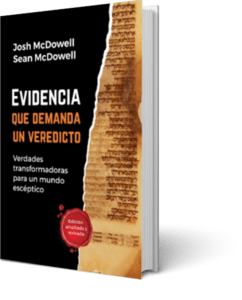Las características únicas de la Biblia hablan de su poder de permanencia. ¿Ya la leíste?
En esta publicación de blog, veremos el origen y la naturaleza única de la Biblia, el profundo impacto que ha tenido en la civilización occidental y su función en gran parte del progreso de la historia humana. No intentaremos demostrar la verdad o validez de la Biblia; Cubriremos estos temas en futuras publicaciones de blog de esta serie.
¿Qué hace que la Biblia se destaque de todos los demás documentos históricos? ¡Muchas cosas! Esto es, su lapso de tiempo, producción geográfica, autoría, géneros literarios, idiomas, enseñanzas, impacto, subsistencia y resiliencia.

Única en su lapso de tiempo
La mayoría de los eruditos están de acuerdo en que el Nuevo Testamento se completó en la segunda mitad del primer siglo d.C. Pero suficiente evidencia confirma que las primeras formas de la Biblia fueron escritas durante la época del éxodo hebreo de Egipto (c. 1400-1200 a. C.). Esto significa que la composición de los escritos bíblicos, desde el primer libro de la Biblia hasta el último de los escritos del Nuevo Testamento, abarca un período de 1300 a 1500 años. La Biblia es excepcional porque fue escrita y compilada a lo largo de un gran número de generaciones.
Única en su producción geográfica
A diferencia de la mayoría de las otras obras literarias, la composición y transmisión de los libros bíblicos no surgió de una comunidad homogénea ubicada en una sola región del mundo antiguo. Más bien, fueron escritos por personas en áreas tan diversas como Roma, Egipto y Mesopotamia. Esta asombrosa diversidad geográfica y étnica distingue a la Biblia de todos los demás libros.
Única en su autoría
The authorship of the Bible is amazingly diverse. Authored by approximately 4o different people, and edited and preserved by countless scribal schools and communities, the Bible preserves for us the writings of a vast array of different personalities from widely divergent social circumstances. Among them: kings, soldiers, herdsmen, legislators, fishermen, courtiers, priests and prophets, and a Gentile physician. Says Professor Mary Ellen Chase, “The story-tellers of the Bible … understood men and women of all sorts and in all conditions. There is literally no type of person whom they have neglected.”
Unique in Its Literary Genres
The Bible is unique in that it includes a multitude of distinct literary forms and genres, including history, law, religious poetry, lyric poetry, parable and allegory, biography, personal correspondence, and even personal memoirs and diaries. Says Gerd Theissen, professor of New Testament at the University of Heidelberg, “The Bible is not a homogenous text but a compendium of different forms and genres. Each must be appreciated on its own terms.” The authors used the genres to focus their audience’s attention on the central character of God, the creator and sustainer of the earth, and His relationship with persons who accept a relationship with Him.
Unique in Its Languages
The Bible is written in three different languages — Hebrew, Aramaic, and Greek — each with its unique character and essence. Larry Walker, former professor of Old Testament and Semitic Languages at Mid-America Baptist Theological Seminary shares some of their distinctive traits:
Hebrew, like the other early Semitic languages, concentrates on observation more than reflection. Effects are observed, but not traced through a series of causes. Hebrew is a pictorial language, vivid, concise, and simple, in which the past is not merely described, but verbally painted. Aramaic, perhaps the longest continuous living history of any known language, is linguistically close to Hebrew, and similar in structure. Aramaic served as a transition from Hebrew to Greek, as the language spoken by Jews in Jesus’ day. Aramaic connects Old Testament Hebrew with New Testament Greek. Greek, which is characterized by strength and vigor, is beautiful, rich, and harmonious. Greek was a language of argument, with a vocabulary and style that could penetrate and clarify phenomena rather than simply tell a story. Sermons recorded in the New Testament combine the Hebrew prophetic message with Greek oratorical force.
Unique in Its Teachings
It is unique in these three teachings: the Trinity, Incarnation and Atonement, and Faith Versus Works.
Scripture proclaims one God, eternally existing as three distinct persons (Father, Son, and Holy Spirit). Scripture tells us that Jesus, as God, took human form that He might dwell among us to show us His nature, and then die for our sins, that we might be forever reconciled to God. But God did not, as some world religions suggest, weaken and humiliate Himself by lowering Himself to the level of humanity with all its frailties, weaknesses, and temptations. Christians recognize that His act is the most profound sacrificial and costly expression of divine love in history.
Scripture tells us that our efforts to be “good enough” will never get us into heaven. God’s grace, alone, ensures that we will live with Him forever. No strings attached. Christianity at heart is a religion not of self-help, but divine rescue. In God’s eyes, every person’s value is found in their very being, not in their behavior. Most world religions, on the other hand, teach that paradise is the reward for good life deeds if, when placed on a scale, they outweigh their bad deeds.
Unique in Its Impact & Resiliency
The most popular book of all time. The Bible is the most widely distributed work every written, with the number of Bibles sold well into the billions. In addition to the printed copies of biblical literature, the Internet and digital media expose even more people to the Bible. YouVersion, a Bible app, has been translated into 799 languages and downloaded over 200 million times to date!
No other written work has been so attacked, scrutinized, and persecuted as have the canonical books of the Bible. Yet the Bible continues to solidly withstand all forms of opposition. Says Bernard Ramm, former professor of religion at Baylor University: “A thousand times over, the death knell of the Bible has been sounded, the funeral procession formed, the inscription cut on the tombstone, and the committal read. But somehow the corpse never stays put. No other book has been so chopped, knived, sifted, scrutinized, and vilified.”
The Bible has greatly influenced western civilization, laying the groundwork for democratic forms of government and law, the rational exploration of the natural world, movements in both art and literature, and societal morals and values. The Bible heavily influenced our country’s maintenance of a system of justice. It’s why we look at a person and say they have value; that killing a human is wrong (if we ignore abortion). As well, the Bible has been a fundamental source for nearly every genre of art and literature. The greatest artists — Raphael, Leonardo da Vinci, Michelangelo, Rembrandt, and others — are most remembered and appreciated for their biblical masterpieces.
A Book Worthy of Your Reading
Clearly the Bible, as a central piece of humanity’s shared history, is worthy of its continued investigation, critical engagement, and appreciation. Some people haven’t read it simply because they assume that a book 2,000 years old must be outdated and irrelevant. Yet if they read it, they gain wisdom for modern life. How relevant is that? In reading it they also would learn of the greatest love story ever told: how Jesus willingly became our scapegoat so that we can be reconciled to God. Jesus literally died to have a relationship with us because we’re that important to Goa. The Bible tells us so. Read it!

Esta publicación del blog destaca el clásico apologético de Josh y Sean McDowell, recientemente revisado, Evidencia que Demanda un Veredicto. Estamos seguros de que este recurso totalmente actualizado y ampliado será una herramienta eficaz de evangelización para ti, y fortalecerá tu fe respondiendo a las preguntas más difíciles que te lancen los escépticos. Sabe lo que sabes, porque es verdad. ¡Pero comparte esta verdad con AMOR!



